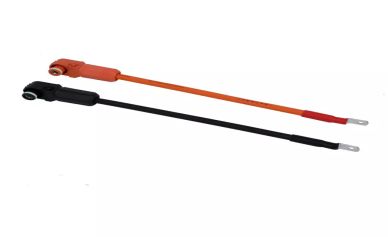Dongguan XSD Cable
Technology Co., Ltd.
- All
- Product Name
- Product Keyword
- Product Model
- Product Summary
- Product Description
- Multi Field Search

In the dynamic world of solar energy, every component plays a vital role in ensuring optimal efficiency and performance. Among these components, DC wires hold significant importance, serving as the essential conduits that transport electricity from solar panels to the rest of the system. In this guide, we'll delve into the intricacies of DC wires and their indispensable role in maximizing efficiency within solar panel systems.
Unveiling the Importance of DC Wires
Understanding Waterproof DC Wires
Factors Influencing DC Wire Efficiency
DC wires, also known as direct current wires, form the backbone of solar panel systems, facilitating the seamless flow of electricity generated by solar panels. Unlike traditional alternating current (AC) wires, which transmit electricity from the grid to homes and businesses, DC wires specifically cater to the unidirectional flow of DC electricity within solar installations. Their efficient design minimizes energy losses, ensuring that every watt of solar energy harvested is effectively utilized.
In outdoor solar installations, exposure to the elements, particularly moisture, poses a significant risk to cable integrity and system performance. Waterproof DC wires are specifically engineered to withstand such challenges, featuring robust insulation and protective coatings that shield against water ingress and corrosion. By ensuring a watertight seal, these cables enhance the longevity and reliability of solar panel systems, even in harsh environmental conditions.
Material Quality: Opting for high-quality materials in DC wire construction, such as cross-linked polyethylene (XLPE) or ethylene propylene rubber (EPR), is crucial for durability and performance. These materials offer superior insulation properties and weather resistance, minimizing the risk of electrical faults and energy losses.
Size and Gauge: Selecting the appropriate size and gauge of DC wires is essential to accommodate the specific power output and voltage requirements of the solar panel system. Thicker wires, such as 10 AWG DC wires, may be necessary for larger installations or longer cable runs to minimize voltage drop and maximize energy transmission efficiency.
Compliance with Standards: Ensure that the chosen DC wires comply with industry standards and regulations, such as UL 4703 for solar cables. Compliance with these standards guarantees compatibility, safety, and reliability, providing peace of mind for solar system owners and installers alike.
Understanding the pivotal role of DC wires in solar panel systems is paramount for maximizing efficiency and performance. By prioritizing factors such as material quality, size, and compliance with standards, stakeholders can ensure the seamless flow of solar energy and contribute to the widespread adoption of clean and sustainable energy solutions. With waterproof DC wires, the resilience of solar installations is further enhanced, enabling reliable operation even in challenging environmental conditions.